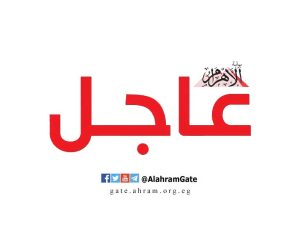A woman from an Arab nationality accompanied her friend in the hospital during surgery. While her friend was ill, the woman told her that the hospital required 24,000 dirhams as the patient’s share of the treatment cost.
The patient sent her brother abroad to help pay the fees, who transferred the amount. Later, the siblings discovered that the accused fabricated the story and embezzled the money for herself, while the insurance company had fully covered the treatment cost. They filed a civil lawsuit, and the court ordered her to repay 37,750 dirhams to the patient’s brother.
Details show that an Arab man and his sister filed a lawsuit demanding the accused friend repay 74,270 dirhams, including 24,000 dirhams transferred to the accused’s account to cover the sister’s surgery fees.
The plaintiffs stated that the sister suffered a sudden illness and asked the accused, her friend, to accompany her during treatment. The accused told her the surgery cost 36,000 dirhams, with insurance covering 12,000 and the remaining 24,000 to be paid by the patient.
The patient asked her brother abroad to transfer the amount to the accused’s account, as she could not handle financial matters during surgery.
The brother transferred 32,760 dirhams, covering the hospital fees and other expenses. After discharge and checking with the insurance company, they found the insurance had fully covered the treatment and no additional payments were requested by the hospital.
The patient confronted the accused, who denied embezzlement and claimed to have paid the insurance without proof. The brother contacted the insurance company, which confirmed full payment, and demanded the accused repay the money. She delayed and denied, claiming the proof was lost from her phone.
The patient also lent the accused cash previously, bringing the total owed to 74,270 dirhams. The accused admitted the debt in writing but claimed inability to pay.
The plaintiffs said the accused persisted in delaying payment despite repeated demands, causing them significant material and moral damages, including legal fees. They attached hospital bills, insurance certificates, and phone conversations, demanding repayment of 32,760 dirhams to the brother, 41,500 to the sister, plus compensation.
The court appointed an expert who confirmed the brother transferred 32,760 dirhams to the accused’s account but found no evidence of payments from the sister. The accused did not appear in court or provide any defense or documents proving payment to the hospital.
The court ruled that the creditor must prove the obligation and the debtor prove discharge. The expert report confirmed the accused’s liability for 32,760 dirhams. The court awarded the brother 5,000 dirhams for material and moral damages, totaling 37,760 dirhams, rejected the sister’s claims for lack of evidence, and ordered the accused to pay court fees and attorney fees.













Recommended for you
Exhibition City Completes About 80% of Preparations for the Damascus International Fair Launch
Talib Al-Rifai Chronicles Kuwaiti Art Heritage in "Doukhi.. Tasaseem Al-Saba"
Unified Admission Applications Start Tuesday with 640 Students to be Accepted in Medicine
Egypt Post: We Have Over 10 Million Customers in Savings Accounts and Offer Daily, Monthly, and Annual Returns
His Highness Sheikh Isa bin Salman bin Hamad Al Khalifa Receives the United States Ambassador to the Kingdom of Bahrain
Al-Jaghbeer: The Industrial Sector Leads Economic Growth